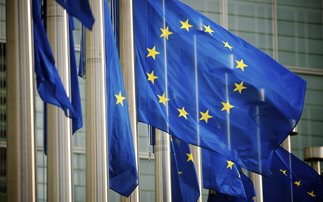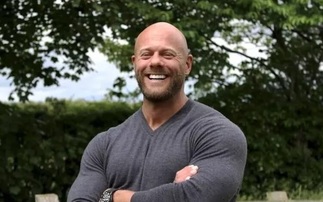The backdrop for the annual UN Climate Summit was bleak - progress now needs to accelerate as the logic of the Paris Agreement is applied
What do you do once you have won the argument? What next? Watching from afar, these felt like the crucial questions that stalked this year's COP23 Summit in Bonn.
Yes, it was a largely technical meeting, its success - and yes it was a success - measured in the slow progress towards a Paris Agreement 'rulebook' and the emergence of a new Talanoa Dialogue and stocktake to drive pre-2020 climate action. But beyond the arcane negotiations loomed two ominous, unbending realities: global emissions look like they are climbing again after four years of flat-lining and current climate pledges would still result in over 3C of warming by 2100.
This is bleak news, and it is testament to humanity's boundless optimism and the summit's Fijian hosts that the past two weeks of talks were not conducted in a funereal atmosphere.
Instead, governments, businesses, and campaigners set about answering those crucial questions about what happens next? Unfortunately, they were only partially successful in finding an answer.
The Paris Agreement of two years ago delivered, in the words of HSBC's Sir Sherard Cowper-Coles, "a profound and important and irreversible change in the pace and pattern of human economic development". Essentially, the argument in favour of genuinely low carbon development - Lord Stern's contention that the only long term development path available is sustainable - was won in the French capital.
Inevitably, there will be periodic backlashes and backsliding on the pledges that were made in Paris. Depressingly, we are living through one already in the form of the Trump presidency. But the essential acceptance that climate change is an existential threat and low carbon development is both feasible and desirable is the official position of every government on the planet bar one. The argument has been won. Time has been called on the fossil fuel era.
The problem is the history of every great economic and social transformation teaches us that winning the argument is only a small part of the journey. Securing equal rights and civil rights legislation was critically important, as was the process of social and cultural evolution that made it clear to the vast majority of people that discrimination and bigotry are A Bad Thing. But you may have noticed that despite these successes, society still has a bit of an issue with sexism and racism.
These challenges are further amplified by the fact the campaigning tactics that help win an intellectual or policy argument are not necessarily the same as the ones that help deliver social and eocnomic change.
I interviewed Tom Burke of the think tank E3G recently and he observed that while "Paris was the turning point" the climate community had not yet fully absorbed how much has changed as a result. "Over the last decade, with climate change as the locomotive but with a whole lot of other issues drawn in behind, 'green' has become a mainstream political issue," he said. "That is a real difference. In 2007 you would not have seen climate as a routine issue in geopolitics and national politics, but it is now. That has been a significant change and I don't think the NGOs have grasped the significance of that and what it means."
The COP23 Summit offered plenty of evidence to back up his suspicion, as diplomats, campaign groups, and businesses went through the now familiarly choreographed routine of public letters and launched initiatives, all the while largely struggling to generate the urgency and positive narrative that is so desperately required.
The absence of most world leaders and the failure of any country to deliver an early and meaningful strengthening of their NDC climate action plan robbed the summit of the profile and unequivocal breakthrough required in response to the news emissions are likely rising again. There are good reasons to think any increase in emissions this year will be a blip - the data is not finalised yet, weak Chinese hydropower output played a key role - but still, it cannot be stressed enough that we should not be moving in the wrong direction at this stage. Decarbonisation needs to be so embedded that a weather-induced 'blip' sees the pace of annual global emissions reductions slow slightly, not deliver an actual increase in greenhouse gases.
That said, there were plenty of bright spots from Bonn.
Fiji's successful championing of indigenous people and women's rights as a driver of the low carbon transition was hugely welcome, as was the multi-polar nature of the talks.
On the Summit side lines, the America's Pledge group and the raft of big corporate announcements provided further evidence the Trump White House simply cannot derail US and global decarbonisation efforts as long as so many other actors remain committed to driving low carbon development.
Perhaps most importantly, the Powering Past Coal group provided a tangible example of what applying the logic of the Paris Agreement to national policy means in practice.
For all the insistence of UK Climate Change Minister Claire Perry that the initiative was not about hectoring other nations, its message was clear. There is no route to complying with the Paris Agreement that does not involve the rapid phasing out of unabated coal power and its replacement with cleaner alternatives. Why not then make that a clear and public centrepiece of your national energy policy? Faced with the Powering Past Coal group, other nations will struggle to find a response that doesn't amount to 'we don't yet want to phase out coal and we are indifferent to the threat this poses to the Paris Agreement'.
The main negotiations also provided evidence officials are well aware of the need for greater urgency and a more widespread application of the Paris Agreement's central logic.
As such, the victory for developing nations in securing agreement on a stock take exercise on pre-2020 action next year is an important development, as is the launch of the Talanoa Dialogue. Pressure on leading countries to strengthen their NDC action plans sooner rather than later has cranked up another few notches.
If the Bonn Summit achieved one thing it is that it has laid the foundations for a crunch meeting next year. The new stock take exercise; the publication of the IPCC's promised report on how the world might, or more likely might not, keep temperature increases below 1.5C; the Talanoa Dialogue's insistence on a discussion about pre-2020 climate action; and the scheduled finalisation of the Paris rulebook all point to a major meeting where world leaders will be required to publicly reassert their commitment to the Paris deal.
The next big climate summit capable of commanding global headlines was meant to be in 2020 when the Paris Agreement came into full effect. There is now the opportunity - in fact there is now the necessity - to bring this point forward by two years and ensure next year's Summit delivers big and highly visible progress.
Which brings us back to those central questions, what do you do once you have won the argument? What next?
The Vatican had one answer last week when it called on world leaders to honour Article 12 of the Paris Agreement which requires countries to raise public awareness of climate change and the response it necessitates.
As Sir Jonathon Porritt observed at the BusinessGreen Leaders' Summit earlier this month, the green economy has achieved remarkable progress over the past 20 years with pretty limited levels of public engagement. However, the pace of decarbonisation required over the coming decades is likely to require much higher levels of public support. Secure that support and the opportunity to unlock the rapid expansion of green industries is obvious.
It all comes back to the old truism that leaders have to lead. Political and business leaders need to throw everything they have got at strengthening national climate action plans and then delivering on them. That means building public support for these so-called NDC plans and visibly demonstrating their multiple benefits.
There are reasons to be optimistic this can be done. The body of evidence suggesting clean technologies are fast becoming more cost effective and productive than incumbent polluting technologies is now overwhelming. As ECIU's Richard Black pointed out last week, the latest research from IRENA shows that most countries' renewable energy plans are more ambitious than their NDCs, it is just that over-stretched civil services are yet to update their decarbonisation plans accordingly.
And yet, even the 'climate chancellor' Angela Merkel has singularly failed to curtail coal use; Poland, host of the next UN Summit, seems implacable in its defence of its coal industry; and many other major emitters have made glacial progress since Paris in applying, let alone strengthening, their NDCs.
Consequently, the clarion call from Bonn is that those businesses, governments, and campaigners who are truly committed to delivering the Paris Agreement now need to fully apply its logic and flex their political muscle in support of the deep decarbonisation it necessitates. They need to ensure COP24 is seen as a high stakes affair where countries must both deliver the rulebook for the Paris Agreement and demonstrate that they are already taking real steps to slash emissions. Any country that wants to be seen as a leader on climate change needs to show how it will strengthen its NDC before 2020, on the grounds that after 2020 it could be too late. Business leaders have to publicly demand that this ratcheting up of ambition happens, and fast.
As M&S's Mike Barry observed at the BusinessGreen Leaders' Summit there is just over 1,000 days until 2020, and by that point global emissions need to be falling at a rapid rate - they are currently rising again.
Green businesses may have won that argument, but that's just the start.









